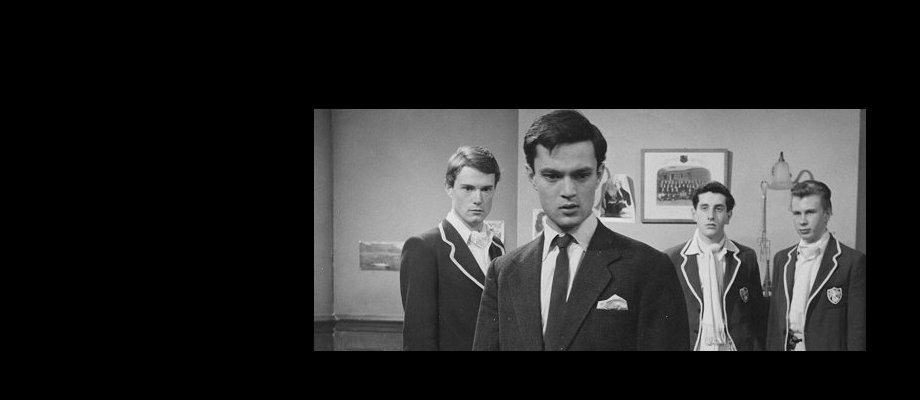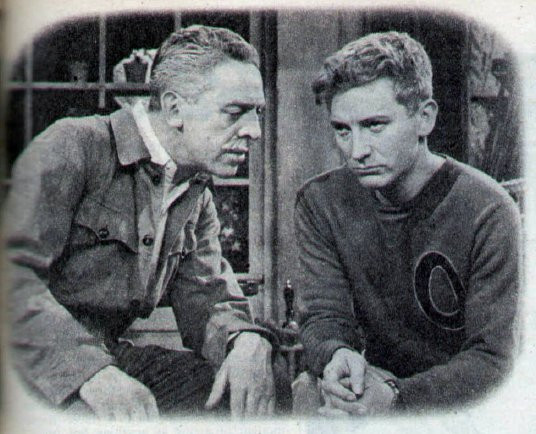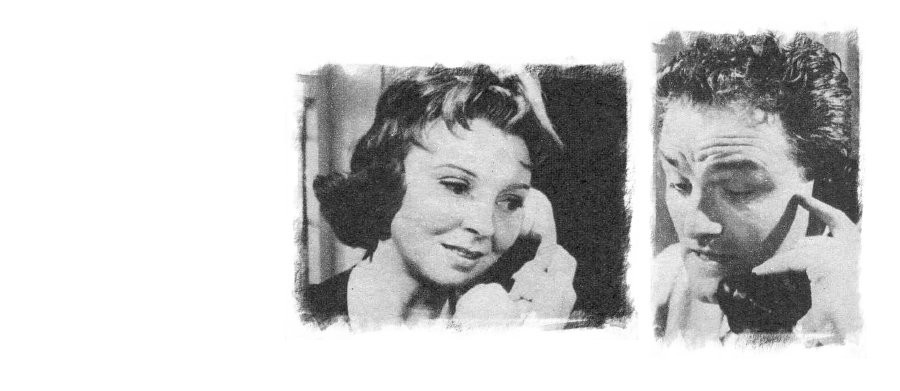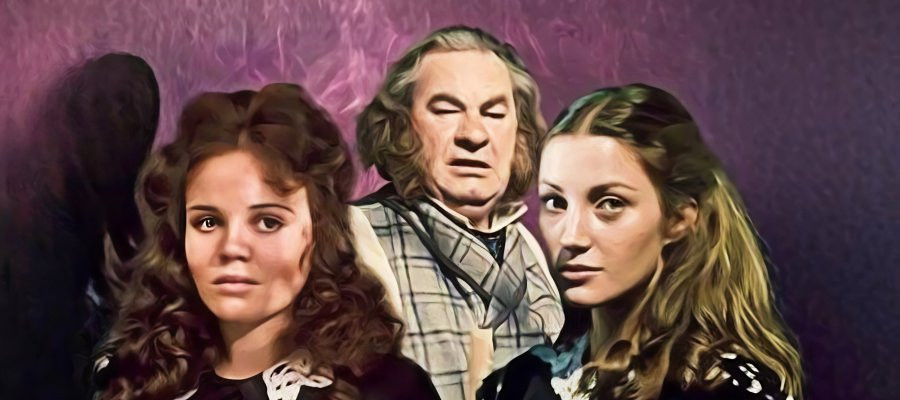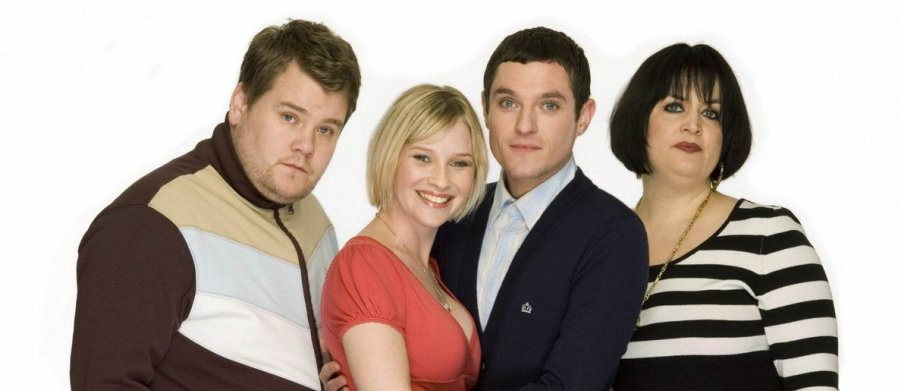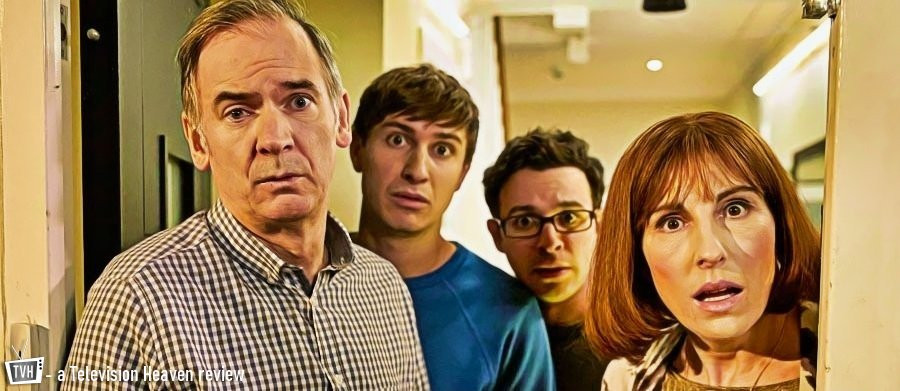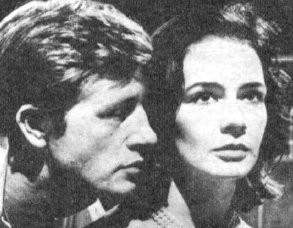
The Best of Men
2012 - United KingdomOriginally broadcast in 2012 as part of the BBC's extensive coverage of the London Olympics, The Best of Men is the story of Dr. Ludwig Guttmann's tireless work with paraplegic patients during the Second World War, which led, in time, to the founding of the Paralympic Games.
While the Paralympics are the end result of the television film's narrative and the reason it was greenlit in the first place, they actually make up only a brief epilogue to the story. Indeed, the Stoke Mandeville Games – the competition that became the World Wheelchair Games (today the IWAS World Games) and, every fourth year, the Paralympics – take up only the final scenes. There is far more to the story of Dr. Guttmann and his courageous patients than the sporting event that has become their legacy, as this film beautifully captures.
Written by Lucy Gannon, The Best of Men takes place in the last days and aftermath of WWII, a time when the injured and disabled were considered, by the state, to be a burden at best, an embarrassment at worst. Stoke Mandeville Hospital in Buckinghamshire – a working hospital to this day – was the destination for many of the most severely injured veterans of the war, particularly those with spinal injuries. With limited mobility and painful ongoing conditions, the patients were kept under sedation as a matter of course, leading to bed sores, infection, depression and a devastatingly low life expectancy.
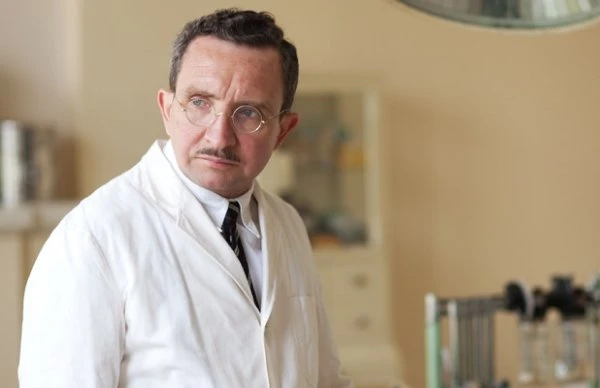
Into this environment came Dr. Guttman, a Jewish German refugee who had fled Nazi Germany with his family in the lead-up to the war. This remarkable man is played by Eddie Marsan – a truly exceptional but often overlooked character actor, known for The World's End, Deadpool 2, Tyrannosaur and Jonathan Strange and Mr. Norrell, among much more. He's the sort of actor you see again and again, never quite recognising because he inhabits his roles so perfectly, each becomes an entirely distinct and believable character. As Dr. Guttman, he exudes a powerful and irresistible optimism that overcomes even the most dire opponent in time. Living in a country that is hostile to him for both his nationality and ethnicity, and confronted by obstruction and bureaucracy at every turn, Guttmann somehow manages to keep his will to succeed and change things for the better. Marsan's performance is beautiful, quietly charming and determined.
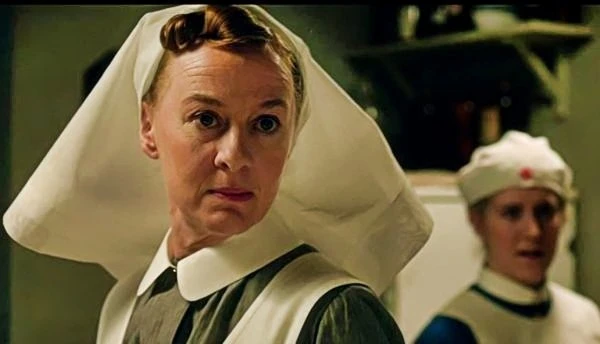
Guttman is not welcomed with open arms by either the staff or patients of Stoke Mandeville. The staff are, at best, set in their ways, if not actively hostile. Niamh Cusack (Heartbeat, Always and Everyone) as Sister Edwards, slowly comes round to his way of thinking, assisting him in keeping the patients active, engaged and lively. At Guttmann's insistence, she speaks to the patients and gets to know them, suddenly and painfully finding common ground with people she had only previously seen as helpless wards.
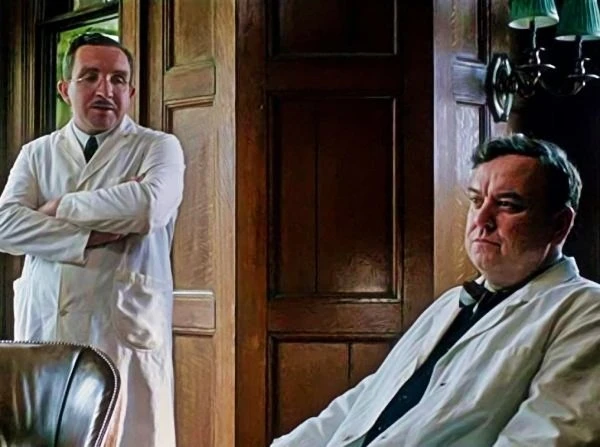
Classical actor Richard McCabe plays Dr. Cowan, the head surgeon who remains obstructive to Guttmann and dismissive of the patients' worth and chances of recovery. On the military side of things, this being an army hospital, are Superintendent Major-General Blake (a genuine historical personage) and Sergeant “Q” Hills, a physical therapy instructor. Played by Nicholas Jones (a career soldier-actor) and Tristan Sturrock (Doc Martin, Poldark) respectively, both come round to Guttmann's persistent methods.
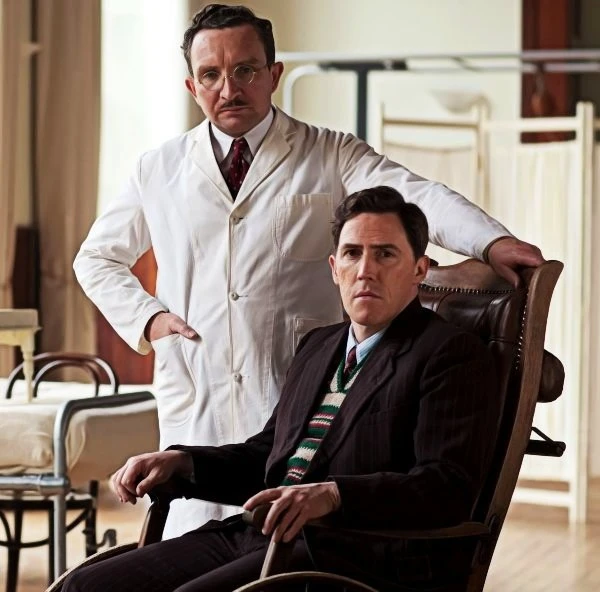
The most unforgettable characters, though, are the patients. Most prominent in the film's publicity is Rob Brydon (Supernova, Gavin & Stacey, The Keith Barret Show) as Wynne Bowen; indeed, he gets a main starring credit and dominates the cover of the DVD release. While sometimes a broad comedy Welshman, Wynne exemplifies the attitude of so many of the patients, having given up on life following his injury and waiting patiently for the end. The only difference is that he hides it under a bitter and mocking wit. His endless dirty comments only disguise his shame that he is now “half a man,” terrified of going home to his wife once he is able since he believes he'll be unable to satisfy her. “There is more than one way to skin a cat,” Dr. Guttmann advises him, and indeed, he returns to Stoke Mandeville singing as only a Welshman can, having turned his attitude around.
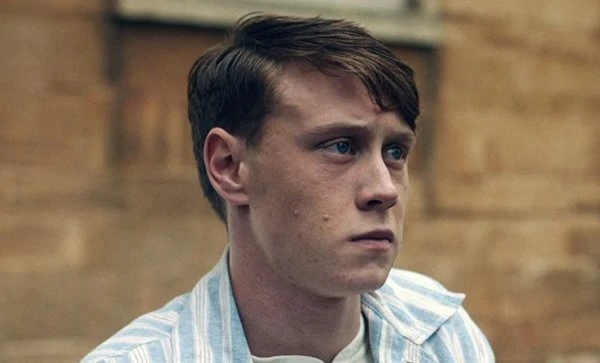
The central story, though, is of William Heath, played by then newcomer George Mackay (now acclaimed for Private Peaceful, Marrowbone and 1917). Joining up to the army straight after leaving school and invalided home in his first week, he is among the most hopeless and depressed of the patients in the ward. Guttmann's kind but uncompromising approach lifts him out of his despair, but pushes him too far the other way, leaving William crushed again when it becomes clear that he will never be able to walk in spite of their best efforts. Not helping are his parents, particularly his father, played by Nigel Lindsay (Safe, Victoria, Four Lions), who essentially writes his son off following his injury and makes plans for him to be taken into care.
In the 1940s, people with spinal injuries were considered by many in the medical profession to be incurable and therefore untreatable, with little more to be done than to make them comfortable before they died. Today this seems unthinkable after so much advancement in both medical techniques and attitudes. In fact, Tristan Sturrock had survived a severe spinal injury himself, eight years before filming the play, making a remarkable recovery through operations and physiotherapy. That such techniques exist is, in part, down to the work of Dr. Guttmann. Guttmann instilled a regime of physical exercise and a commitment to treating his patients as people to help, rather than sad cases to chauffeur to the grave. Prior to his reforms, patients were transported to the hospital in caskets that were virtually coffins for the living. The prospect of surgery to help repair the damage was considered a waste of time and money. Wounded soldiers arrived at Stoke Mandeville begging to die. Guttmann's reforms changed the attitude from the doctors down to the patients.
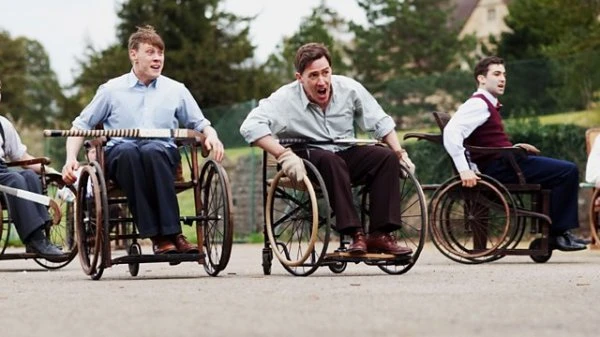
As his exercise regimes pays dividends and the patients begin to improve in both their physical and emotional health, Guttman begins to expand it into more competitive sports. The patients' natural competitive streak, particularly between Wynne and William, spurs them on, and the earliest forms of wheelchair hockey and basketball are developed. William throws himself in so enthusiastically that he breaks a leg, something that leads to condemnation for Guttmann, but William notes he was hardly using it anyway. In time, Guttmann expands these games, leading a national competition held at Stoke Mandeville, bringing in patients from other hospitals. Dismissing the mockery of his peers, he insists that he will makes these games international – his “parallel Olympics.”
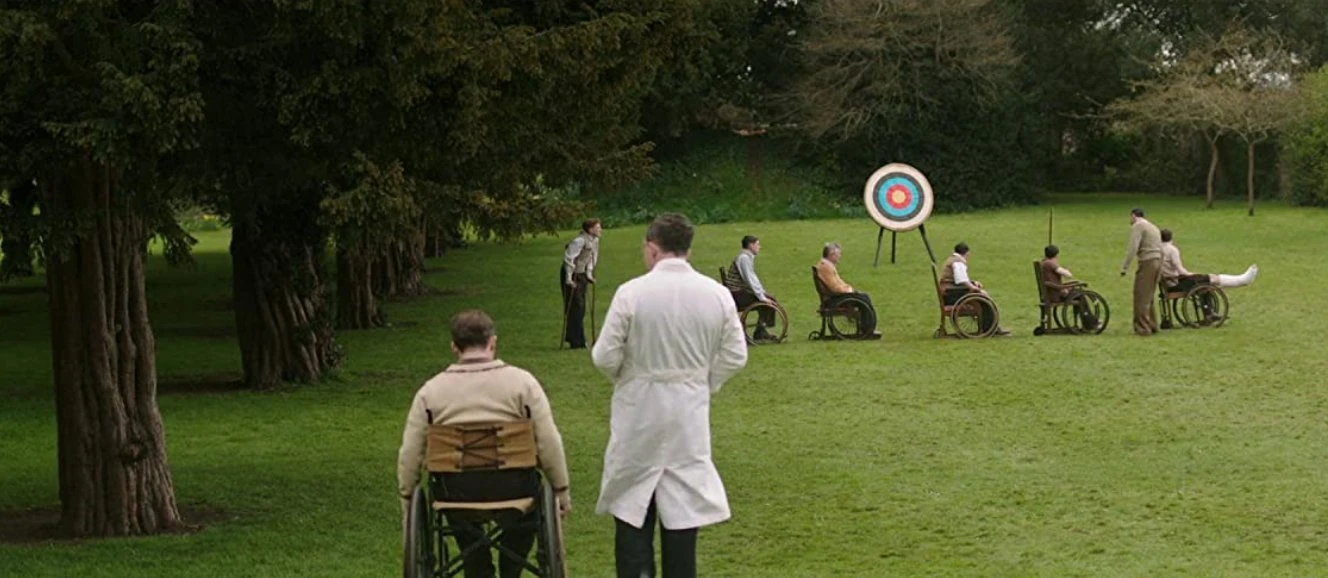
While its selling point is as the origin of the Paralympics, that really is only the last moments of this excellent film, which rightly focuses on the people who fought for the rights and wellbeing of disabled veterans. Postwar attitudes to the disabled changed, but slowly, and there is still stigma to be fought against today. The Best of Men is part of this fight, an uplifting, heartfelt and funny production hinging on a fine performance by Marsen. Sadly, the film has been largely ignored by the BBC since its initial 2012 broadcast, only receiving a handful of repeats in the subsequent days and another showing in 2014, tying into the follow-up Winter Paralympics in Sochi. A gentle triumph, The Best of Men deserves to be shown every time Olympic season comes round.
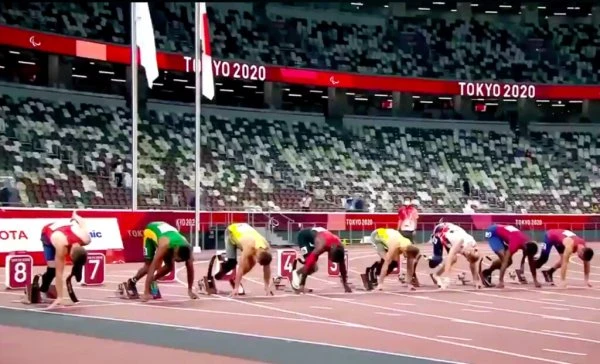
Review: Daniel Tessier
Dan describes himself as a geek. Skinny white guy. Older than he looks. Younger than he feels. Reads, watches, plays and writes. Has been compared to the third, fourth, fifth, sixth, seventh, eighth, tenth, eleventh and twelfth Doctors, and the Dream Lord. Plus Dr. Smith from 'Lost in Space.' He has also had a short story published in Master Pieces: Misadventures in Space and Time a charity anthology about the renegade Time Lord.
Dan's web page can be here: Immaterial
Seen this show? How do you rate it?
Seen this show? How do you rate it?
Published on September 8th, 2021. Written by Daniel Tessier for Television Heaven.



